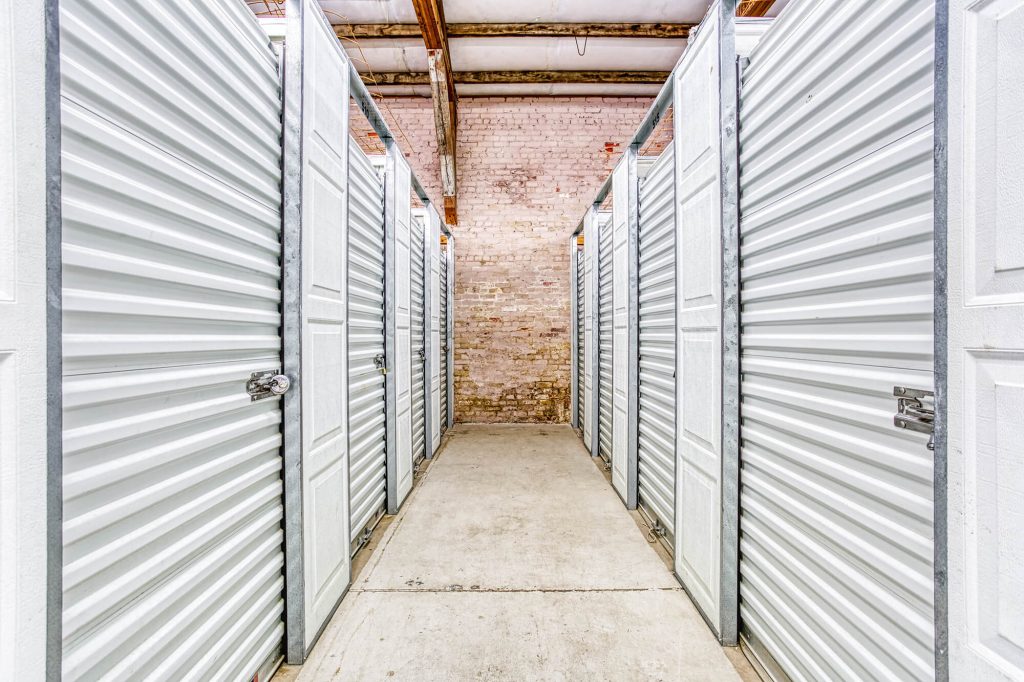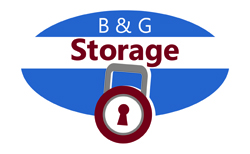Unlocking Storage Solutions: A Guide to Different Storage Unit Types
Navigating the maze of storage solutions can often feel daunting, especially when faced with an array of choices that each come with their own unique features. Whether you’re downsizing, safeguarding valuables, or simply looking to declutter, choosing the right storage unit type is crucial. With facilities spread from Woodbine, NJ to Selma, AL, and all the way to Brooksville, FL, our network including Storage Ward, Selma Self Storage, ABCD Econo Storage, and the renowned B&G Storage in Alabama has seen it all. This guide will walk you through the distinct advantages and disadvantages of drive-up, indoor, temperature-controlled, and climate-controlled storage units to ensure your belongings are stored with care and understanding. Let’s dive into the world of storage and simplify your decision-making process.
Drive-Up Storage Units: Accessibility Meets Convenience
When picturing a traditional storage unit, what likely comes to mind is the drive-up storage unit. These are particularly popular among those who prioritize easy access. Let’s delve into the specifics of these units and the various advantages and disadvantages they present.
Advantages:
- Ease of Access: The hallmark feature of drive-up storage units is the ability to drive directly up to the door of the unit. This is especially beneficial for heavy lifting or when you’re transporting large items, making the process swift and hassle-free.
- Flexible Loading/Unloading: Need to quickly drop something off or pick it up? Drive-up units allow for fast and flexible loading and unloading without the need to navigate hallways or elevators.
- Vehicle Storage: Some larger drive-up units can even accommodate vehicle storage, be it a car, motorcycle, or small boats.
- Cost-Effective: Typically, drive-up units are less expensive than their climate-controlled counterparts, making them a cost-effective solution for many.
Disadvantages:
- Limited Climate Control: Drive-up units typically don’t offer climate control. This means items sensitive to temperature and humidity might not fare well over extended periods, especially in areas with extreme weather conditions.
- Security Concerns: While all our facilities prioritize security, drive-up units can be more accessible to potential intruders than indoor units. However, with the right locks and routine checks, this risk can be mitigated.
- Exposure to Elements: Items stored in drive-up units might be more susceptible to dust and the elements, especially if the unit isn’t well-sealed.
When considering a drive-up storage unit, weigh the convenience against the type of items you’re storing. If you have belongings that require specific conditions, you might want to explore temperature or climate-controlled options.
Indoor Storage Units: Security and Protection
If you’re looking for added protection from the elements, as well as a bit more security, indoor storage units are your answer. Located inside larger storage buildings, these units offer a different kind of storage experience. Let’s take a detailed look at the upsides and potential downsides of these units.
Advantages:
- Weather Protection: Being indoors means your items are shielded from external weather conditions like rain, snow, or excessive heat. This is especially valuable for belongings that might be damaged by prolonged exposure to such conditions.
- Enhanced Security: Indoor units, due to their location within a larger building, often benefit from additional layers of security. This could include security cameras in hallways, coded access points, or even security guards in some facilities.
- Climate Stability: While not necessarily climate-controlled, indoor units often offer a more stable temperature compared to drive-up units, thanks to the insulation provided by the larger building.
- Less Dust and Debris: With the absence of direct exposure to the outdoors, indoor units generally accumulate less dust, reducing the need for frequent clean-ups.
Disadvantages:
- Limited Accessibility: Unlike drive-up units, indoor units might not be as straightforward to access. You might need to navigate corridors, use carts or dollies, or take elevators in multi-story facilities.
- Cost: Indoor units can sometimes be a bit pricier than drive-up units because of the added benefits they provide.
- Limited Sizes: Depending on the facility, indoor units might not come in as wide a variety of sizes as drive-up units, potentially limiting options based on your storage needs.
In conclusion, if you prioritize security and protection from external conditions, an indoor storage unit might be the ideal choice for you
Temperature-Controlled Storage Units: Preserving Your Belongings
For those who have items sensitive to extreme temperatures, such as wooden furniture, musical instruments, or certain electronics, a temperature-controlled storage unit is essential. These units maintain a consistent temperature range, ensuring your valuables remain unaffected by external temperature fluctuations. Dive into the key advantages and some considerations to be aware of.
Advantages:
- Consistent Temperatures: These units are designed to stay within a specific temperature range, typically between 55 and 80 degrees Fahrenheit. This consistency prevents damage to temperature-sensitive items.
- Protection from Extreme Weather: Whether it’s the scorching summers of Brooksville, FL, or a chilly winter in Selma, AL, temperature-controlled units ensure your belongings remain unaffected.
- Better Air Quality: Such units often have better air circulation and filtration systems. This means there’s less chance for mold or mildew to develop, and the air remains clean, reducing the potential for dust accumulation.
- Protection from Humidity: In addition to temperature, some of these units also control humidity levels, which can be particularly useful in humid areas or for storing items like artwork, documents, or electronics.
Disadvantages:
- Higher Cost: Given the added technology and energy to maintain consistent temperatures, these units are usually more expensive than traditional indoor or drive-up units.
- Accessibility: Similar to indoor storage units, there might be slightly less direct access compared to drive-up units. Depending on the facility, you might need to walk through indoor areas to reach your unit.
- Limited Availability: Not all facilities might offer temperature-controlled units, or there might be limited sizes available. It’s always a good idea to check and book in advance.
In summary, temperature-controlled storage units offer an enhanced level of protection for those precious items that could be harmed by temperature swings.
Climate-Controlled Storage Units: The All-Weather Shield
When you want to ensure optimal protection for your belongings, climate-controlled units come into play. These units not only regulate temperature but also manage humidity levels, offering comprehensive protection against the elements. Let’s delve into the advantages and considerations of these premium storage solutions.
Advantages:
- Complete Environmental Control: Beyond just maintaining a consistent temperature, climate-controlled units also keep humidity in check, usually maintaining it at levels between 30% and 50%. This prevents the growth of mold, mildew, and the warping of materials like wood.
- Ultimate Protection: Ideal for antique furniture, fine art, wine collections, leather goods, and musical instruments. These items, which can be damaged by moisture, benefit significantly from the humidity control aspect.
- Dust and Debris Minimization: These units are often better sealed than other types, reducing the amount of dust or pests that can get inside.
- Comfort for the User: If you frequently visit your storage unit or work inside it, the controlled environment ensures you’re comfortable during summer heat or winter chill.
Disadvantages:
- Premium Pricing: For the added protection, you’ll often pay a premium. It’s essential to weigh the value of the items you’re storing against the additional cost.
- Potential Limited Access: As with temperature-controlled units, some facilities might limit access times or require navigating through indoor corridors to reach your unit.
- Not Always Necessary: While these units offer the best protection, not all items require this level of care. It’s essential to assess if your belongings need such a controlled environment or if a standard or temperature-controlled unit will suffice.
To encapsulate, for those who have valuable or sensitive items that need the pinnacle of protection against both temperature and humidity fluctuations, climate-controlled units are the answer.
Comparing Storage Options: Finding the Right Fit
When it comes to safeguarding our prized possessions, understanding the array of storage solutions available can be pivotal. Each type of storage unit brings its own set of advantages and considerations. Let’s recap and compare to help you determine the ideal choice for your needs.
- Drive-Up Storage Units:
- Pros: Direct vehicle access, time-efficient, ideal for large items.
- Cons: Vulnerable to external weather conditions, potentially less secure.
- Indoor Storage Units:
- Pros: Enhanced security, protection from direct external conditions.
- Cons: Might require more effort to access, typically found in multi-story facilities.
- Temperature-Controlled Storage Units:
- Pros: Consistent temperature range, protects sensitive items from temperature extremes.
- Cons: Premium cost, potential limited access.
- Climate-Controlled Storage Units:
- Pros: Optimal protection with controlled temperature and humidity, best for highly sensitive items.
- Cons: Comes at a higher price, might have limited accessibility.
In choosing the right storage unit, consider the nature of items you’re storing, your budget, and how often you’ll access the unit. While drive-up units offer convenience, indoor and controlled environment units promise added protection. Our extensive facilities, from Storage Ward in Woodbine, NJ to B&G Storage in Alabama, cater to a broad spectrum of needs ensuring that your belongings are always in good hands.
Making Informed Storage Decisions
The world of storage units is vast, and each type brings distinct advantages depending on individual needs. Whether you’re looking to store seasonal items, valuable antiques, business inventory, or just decluttering your space, there’s a suitable storage solution for you. Taking the time to understand the different types of storage units ensures that your possessions remain safe and in optimal condition. At our facilities, from Storage Ward to B&G Storage, we pride ourselves on offering a range of options tailored to our clients’ unique needs. With the insights from this guide, you’re well-equipped to make a knowledgeable choice that safeguards your valuables. Always remember, the right storage solution is not just about space, but also about peace of mind.
ABCD Econo Storage (Brooksville FL) · B & G Storage (Brewton AL) · B & G Storage (Atmore AL – Hwy 31)
B & G Storage (Atmore AL – 2nd Ave) · B & G Storage (Atmore AL – Trammell St) · Storage Ward (Tuckahoe NJ)

Tim Glasow
About the Author: Tim is an SEO Strategist at Storage Asset Management in York, PA. He is a self-storage industry specialist who has written about everything from storage advice and helpful resources to industry trends. In his free time, Tim enjoys sampling craft beer and exploring the local music scene.


